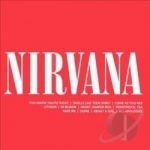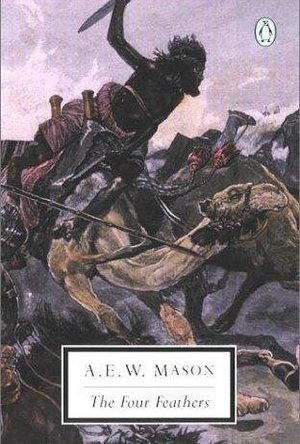Search
Search results
Daniel Boyd (1066 KP) rated The Jinx: The Life and Deaths of Robert Durst in TV
Jun 27, 2018 (Updated Jun 27, 2018)
Mindblowing
Contains spoilers, click to show
I have been on a bit of a documentary kick lately and my most recent watch was the Jinx. I never watched this show back when it aired in 2015, or followed the story at the time, so I went into this show knowing very little about the tale it was telling. I'd say if you are in the same boat, then that is probably the best way to go into this doc. There are only six parts to the doc, so it can be binged over a few nights or in one day. Don't look up anything about it before watching and just go in blind, by the end your mind will be blown.
Please don't read on until you have seen the show in it's entirety as there are massive SPOILERS ahead. It feels weird to say that about a documentary, something that actually happened, but I promise you will not want this final revelation spoiled for you in any way.
Ok, so during the last interview, Andrew Jarecki confronts Robert Durst with two letters with the same address handwritten on each, one written by Durst years previous and the other was written by the killer and sent into a police station to notify them of the location of a body. Beverly Hills is spelt wrong in each, it is spelt BEVERLEY on each and the handwriting is exceptionally similar, especially the letter N. Durst initially appears pretty unphased by the accusation and brushes it off, until Jarecki asks him to look at a sheet that has the two versions of the address blown up and placed side by side and he asks him to tell him what one he wrote and what one he didn't and Durst is unable to tell the difference. He then begins burping uncontrollably as if trying to supress vomiting. The interview ends and Jarecki thanks Durst for his time. Durst then goes to the bathroom, unaware that he is still wearing a live microphone and says:
"There it is, you're caught.
You're right of course, but you can't imagine...
Arrest him.
I don't know what's in the house.
Oh, I want this.
What a disaster.
He was right, I was wrong.
And the burping?
I'm having difficulty understanding the question.
What the hell did I do?
Killed them all, of course."
Holy shit, these filmmakers just stumbled into getting an accidental confession from a guy who has dodged the law since 1982. Not only that, but what was recorded actually sounds like two different people having a conversation, almost like Gollum and Sméagol from Lord Of The Rings. The recording is creepy, but extremely important and provides an absolutely captivating ending to this already brilliant story. I think that what we hear in the bathroom is two sides of Durst arguing about what has just transpired. The way that each line is like a comment and then a response and the way that his tone of voice changes from line to line. I will type up my interpretation of the conversation below showing what side of Durst said what.
Good Bob: There it is, you're caught.
Bad Bob: You're right of course, but you can't imagine...
Good Bob: Arrest him.
Bad Bob: I don't know what's in the house.
Good Bob: Oh, I want this.
Bad Bob: What a disaster.
Good Bob:He was right, I was wrong.
Bad Bob: And the burping?
Good Bob: I'm having difficulty understanding the question.
What the hell did I do?
Bad Bob: Killed them all, of course.
This is obviously pure conjecture, but it's how I see the conversation going in Durst's head. Whether this is proof of disassociation or multiple personality disorder, I don't know as I'm not a psychiatrist, all that I know is that it is absolutely fascinating to hear this play out in a real world situation and makes for an absolutely brilliant piece of TV.
Please don't read on until you have seen the show in it's entirety as there are massive SPOILERS ahead. It feels weird to say that about a documentary, something that actually happened, but I promise you will not want this final revelation spoiled for you in any way.
Ok, so during the last interview, Andrew Jarecki confronts Robert Durst with two letters with the same address handwritten on each, one written by Durst years previous and the other was written by the killer and sent into a police station to notify them of the location of a body. Beverly Hills is spelt wrong in each, it is spelt BEVERLEY on each and the handwriting is exceptionally similar, especially the letter N. Durst initially appears pretty unphased by the accusation and brushes it off, until Jarecki asks him to look at a sheet that has the two versions of the address blown up and placed side by side and he asks him to tell him what one he wrote and what one he didn't and Durst is unable to tell the difference. He then begins burping uncontrollably as if trying to supress vomiting. The interview ends and Jarecki thanks Durst for his time. Durst then goes to the bathroom, unaware that he is still wearing a live microphone and says:
"There it is, you're caught.
You're right of course, but you can't imagine...
Arrest him.
I don't know what's in the house.
Oh, I want this.
What a disaster.
He was right, I was wrong.
And the burping?
I'm having difficulty understanding the question.
What the hell did I do?
Killed them all, of course."
Holy shit, these filmmakers just stumbled into getting an accidental confession from a guy who has dodged the law since 1982. Not only that, but what was recorded actually sounds like two different people having a conversation, almost like Gollum and Sméagol from Lord Of The Rings. The recording is creepy, but extremely important and provides an absolutely captivating ending to this already brilliant story. I think that what we hear in the bathroom is two sides of Durst arguing about what has just transpired. The way that each line is like a comment and then a response and the way that his tone of voice changes from line to line. I will type up my interpretation of the conversation below showing what side of Durst said what.
Good Bob: There it is, you're caught.
Bad Bob: You're right of course, but you can't imagine...
Good Bob: Arrest him.
Bad Bob: I don't know what's in the house.
Good Bob: Oh, I want this.
Bad Bob: What a disaster.
Good Bob:He was right, I was wrong.
Bad Bob: And the burping?
Good Bob: I'm having difficulty understanding the question.
What the hell did I do?
Bad Bob: Killed them all, of course.
This is obviously pure conjecture, but it's how I see the conversation going in Durst's head. Whether this is proof of disassociation or multiple personality disorder, I don't know as I'm not a psychiatrist, all that I know is that it is absolutely fascinating to hear this play out in a real world situation and makes for an absolutely brilliant piece of TV.
David McK (3663 KP) rated The Four Feathers in Books
Jan 28, 2019
'Every man would be a coward where he but brave enough' is a quote that I thought came from this novel.
Turns out I was wrong on both counts - the actual quote is 'For all men would be cowards if they durst', and was actually written by John Wilmot, the Earl of Rochester in his poem "A Satyr against Reason and Mankind" roughly 2 centuries before the publication of this novel.
It's also a line that Mason, ad the others of his generation, would have had absolutely no understanding of and would (probably) have been vehemently against, as depicted in the events of this story.
This story starts on the eve of his regiment sailing off to fight in Sudan, when Harry Feversham resigns his commission, having just gotten engaged to his fiancee. When his 'friends' find out they send him three white feathers - the symbols of cowardice - which he receives in the company of that fiancee, who adds a fourth.
In a bid to retain his honour - valued above all else by the Colonial British of the time - Harry hatches a plan to go under-cover to Sudan, looking for opportunities to prove his bravery to those friends and (finally) his fiancee so they will take their feather back.
(Personally, I don't know why he didn't just do the same as Nobby Nobs in [a:Terry Pratchett|1654|Terry Pratchett|https://d.gr-assets.com/authors/1235562205p2/1654.jpg]'s [b:Jingo|47990|Jingo (Discworld, #21)|Terry Pratchett|https://d.gr-assets.com/books/1327921813s/47990.jpg|1128623], and save said feathers for a mattress ... )
The result is very much a book of its time, very much a 'boys-own' story of Harry and his daring escapades in the Sudan. It's also very much so a novel that needs read with that in mind: to modern minds, the entire premise might seem a little rickety (would someone really go to those extremes just to 'prove' their bravery?), but such was the mores of the day.
Turns out I was wrong on both counts - the actual quote is 'For all men would be cowards if they durst', and was actually written by John Wilmot, the Earl of Rochester in his poem "A Satyr against Reason and Mankind" roughly 2 centuries before the publication of this novel.
It's also a line that Mason, ad the others of his generation, would have had absolutely no understanding of and would (probably) have been vehemently against, as depicted in the events of this story.
This story starts on the eve of his regiment sailing off to fight in Sudan, when Harry Feversham resigns his commission, having just gotten engaged to his fiancee. When his 'friends' find out they send him three white feathers - the symbols of cowardice - which he receives in the company of that fiancee, who adds a fourth.
In a bid to retain his honour - valued above all else by the Colonial British of the time - Harry hatches a plan to go under-cover to Sudan, looking for opportunities to prove his bravery to those friends and (finally) his fiancee so they will take their feather back.
(Personally, I don't know why he didn't just do the same as Nobby Nobs in [a:Terry Pratchett|1654|Terry Pratchett|https://d.gr-assets.com/authors/1235562205p2/1654.jpg]'s [b:Jingo|47990|Jingo (Discworld, #21)|Terry Pratchett|https://d.gr-assets.com/books/1327921813s/47990.jpg|1128623], and save said feathers for a mattress ... )
The result is very much a book of its time, very much a 'boys-own' story of Harry and his daring escapades in the Sudan. It's also very much so a novel that needs read with that in mind: to modern minds, the entire premise might seem a little rickety (would someone really go to those extremes just to 'prove' their bravery?), but such was the mores of the day.


